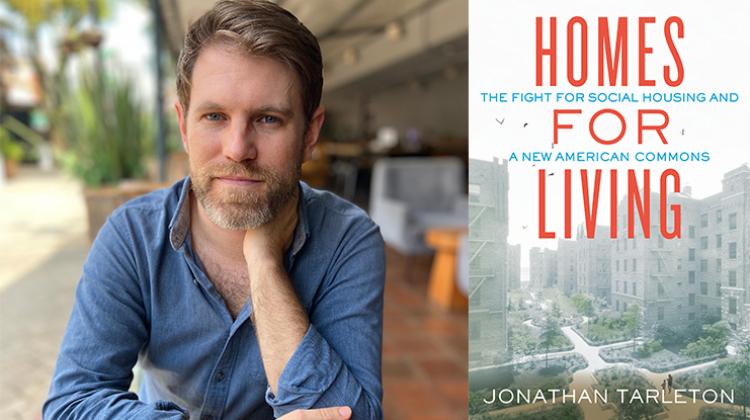Preserving and Envisioning a More Robust Social Housing

Southbridge Towers, credit Jonathan Tarleton
Homeownership, long a cornerstone of the American Dream and a reliable pathway to accumulate wealth for many Americans, has increasingly become difficult to attain for the average American household. Limited stock, rising interest rates, and skyrocketing rents in many cities around the United States have contributed to increasing affordability challenges. Many urban areas that host thriving job markets also track average home costs well over the affordability of the median household income. For example in 2022 the average household income in Brooklyn, New York was close to $74,000 while the average home price was $1.34 million. With the typical home price nearly three times the national average, what avenues remain for middle and lower income individuals to live in the city?
In many expensive cities around the world, limited-equity housing cooperatives (co-ops) offer a pathway to homeownership for individuals unable to afford other types of housing stock such as single-family homes or townhomes. Most co-ops in the US carry no restrictions on the shares that residents buy to own their piece of the building; limited-equity co-ops do—this is the key mechanism by which these co-ops are kept affordable even as real estate prices rise around them. As shareholders in the joint-ownership of the building, residents also exercise control over their building’s governance through board elections and special votes. But in locations with rapidly increasing property values, residents of some limited-equity co-ops are considering removing the sale restrictions that have kept their homes affordable for years, in pursuit of greater personal profit.
“In 2014, while I was working as a journalist in New York, a resident of one of these co-ops reached out to me. His co-op was considering ‘privatization.’ I was intrigued—it was one of many co-ops undergoing such an internal debate with massive repercussions for the community, and those debates represented a larger case of some of the primary beneficiaries of a public good—this affordable housing subsidized by local and state government—also acting to demolish it for their own gain,” says Jonathan Tarleton (MCP ‘18). “So I eventually delved into these debates during my time as a graduate student at MIT, asking: how residents of these co-ops made personal and collective decisions that decided the future of their homes and what influenced their decisions.”
Remaining in contact with residents of two co-ops in Brooklyn for eight years, Tarleton conducted interviews to map two case studies of how individuals navigate the complex joint decision-making, weighing cost benefits such as long-term collective, social benefits versus the ability to accrue wealth in the short-term. Tarleton weaves the narratives of his interviewees into an omnibus of their shared experiences in his new book, Homes for Living: The Fight for Social Housing and a New American Commons (Beacon Press, 2025). “I was committed to evolving this work from a master’s thesis into a narrative nonfiction book to reach a broader audience and to give more depth to the communities and residents featured within. My hope is that the particulars of these debates can feed into current efforts to build new social housing—to foreground the kind of social maintenance, not just the physical or financial, that’s required to maintain this kind of public infrastructure in the long-term.”
Tarleton, based in Washington D.C., is an urban planner, designer, and writer. His work spans the fields of economic development and housing, with a particular interest in transformative change to reckon with inequalities of race and class, and strengthen economic democracy, social infrastructure, and community capacity. He is a senior advisor at the Bloomberg Center for Public Innovation at Johns Hopkins, an adjunct professor at MICA, and a member of the board of Shelterforce.
Tarleton will return to MIT to give a talk about Home for Living and the case studies’ implications for social housing and our housing crises on March 10th. The event is free and open to the public, register/more information.


